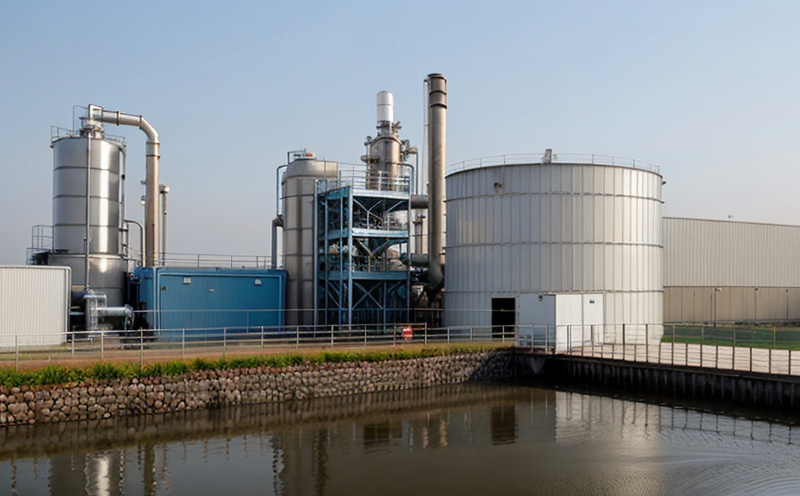ISO 11885 ICP-OES Metal Testing in Industrial Water
The ISO 11885 standard specifies an Inductively Coupled Plasma Optical Emission Spectroscopy (ICP-OES) method for the determination of trace metals in industrial water and wastewater. This service is crucial for compliance with environmental regulations, ensuring product quality, and maintaining a safe working environment within processing facilities. Industrial water systems are vital to many manufacturing processes, from cooling towers to chemical production. Contamination by heavy metals can lead to significant operational issues and health hazards.
The testing process begins with the collection of representative samples from various points in the industrial water system. These samples must be carefully handled to prevent contamination before analysis. Sample preparation typically involves dilution if the metal concentration exceeds the detection limit, ensuring accurate results without overloading the ICP-OES instrument.
Our state-of-the-art laboratory uses an Agilent 7500 Series ICP-OES system for this testing. This equipment is capable of detecting metals down to parts per billion (ppb) levels, providing precise data that can inform critical decisions in industrial water management. The use of ISO 11885 ensures consistency and comparability with other laboratories adhering to the same standard.
The acceptance criteria for this testing are based on industry standards such as ISO 11885, ASTM D3249, or any specific facility requirements. If a metal concentration exceeds allowable limits set by these standards, corrective actions must be taken immediately to address potential hazards and prevent contamination of downstream processes.
Our team of experts can assist you in understanding the nuances of this testing process and interpreting results within the context of your operations. Whether for compliance purposes or to improve operational efficiency, we offer tailored solutions that meet your unique needs.
| Sample Collection Points | Acceptance Criteria | Testing Frequency |
|---|---|---|
| Cooling towers, boilers, chemical reactors | Concentration limits as per ISO 11885 and ASTM D3249 | Monthly, quarterly, or annually depending on facility requirements |
| Heavy Metals | Detection Limits (ppb) | Common Sources in Industrial Water Systems |
|---|---|---|
| Copper, Lead, Zinc | 0.1 - 0.5 ppb | Pipe corrosion and chemical additives |
| Manganese, Iron | 1 - 5 ppb | Rust formation and oxidation processes |
- Ensure compliance with local and international regulations.
- Avoid potential operational disruptions due to metal contamination.
- Improve the overall quality of industrial water systems.
Eurolab Advantages
At Eurolab, we pride ourselves on delivering top-tier laboratory testing services. Our advantages include:
- ISO/IEC 17025 Accreditation: Ensures our methods and facilities meet international standards for reliability.
- Expertise: Our team consists of highly trained professionals with extensive experience in industrial water testing.
- State-of-the-Art Equipment: Leveraging advanced instrumentation like the Agilent 7500 Series ICP-OES ensures accurate and precise results.
- Comprehensive Reporting: We provide detailed, actionable reports that help you make informed decisions.
- Customer Focus: Tailored solutions that meet your unique facility requirements.
We are committed to providing the highest level of service and quality in all our testing processes. Contact us today to learn how we can assist with ISO 11885 ICP-OES metal testing in industrial water.
Quality and Reliability Assurance
Eurolab is dedicated to maintaining the highest standards of quality and reliability assurance. Our commitment to these principles is reflected in our adherence to international standards such as ISO/IEC 17025, which governs laboratory testing and calibration services.
We have implemented stringent quality control measures that ensure consistent results across all tests conducted at Eurolab. These measures include:
- Regular equipment calibrations
- Standard operating procedures for sample handling and preparation
- Internal audits to verify adherence to ISO/IEC 17025 requirements
- Continuous staff training on the latest testing techniques and methods
By upholding these standards, we guarantee that every test result is accurate and reliable. Our quality assurance processes are designed to provide peace of mind for our clients, ensuring they can trust the data produced by Eurolab.





